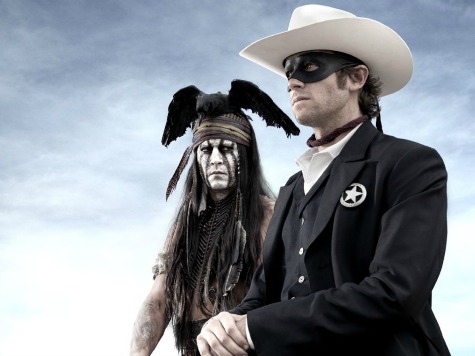
The Lone Ranger opens with a sly storytelling hook that acknowledges Hollywood’s checkered past regarding its depiction of Native Americans. That apparently wasn’t enough for the new reboot, which mocks the “white man,” targets a capitalist and casts aspersions at the U.S. military in true 2013-era fashion.
We first meet an aged Tonto (Johnny Depp) as he participates in a “Wild West”-style carnival show under the title “Noble Savage” circa 1933.
It’s a way to tell audiences, “hey, we understand the context of a new Lone Ranger film, and this project won’t be offensive to Native Americans.”
That isn’t enough for the film, produced by the typically pro-American film veteran Jerry Bruckheimer. The movie revisits the theme of the evil white man, particularly during one exchange featuring Depp’s Tonto character.
“What does the white man kill for?” he asks, one of those rhetorical questions meant to linger long after the scene wraps.
And is it a spoiler to say that one of the film’s heavies is a capitalist?
The Lone Ranger makes Tonto and the titular hero equal partners, a nod to modern times that makes all the more sense given Depp’s involvement. The film’s other flourishes also speak to the current Hollywood eco-system, one where those who bring innovations to the public are invariably crooked, and a gesture toward past wrongdoings isn’t enough to slake the P.C. mindset.

COMMENTS
Please let us know if you're having issues with commenting.